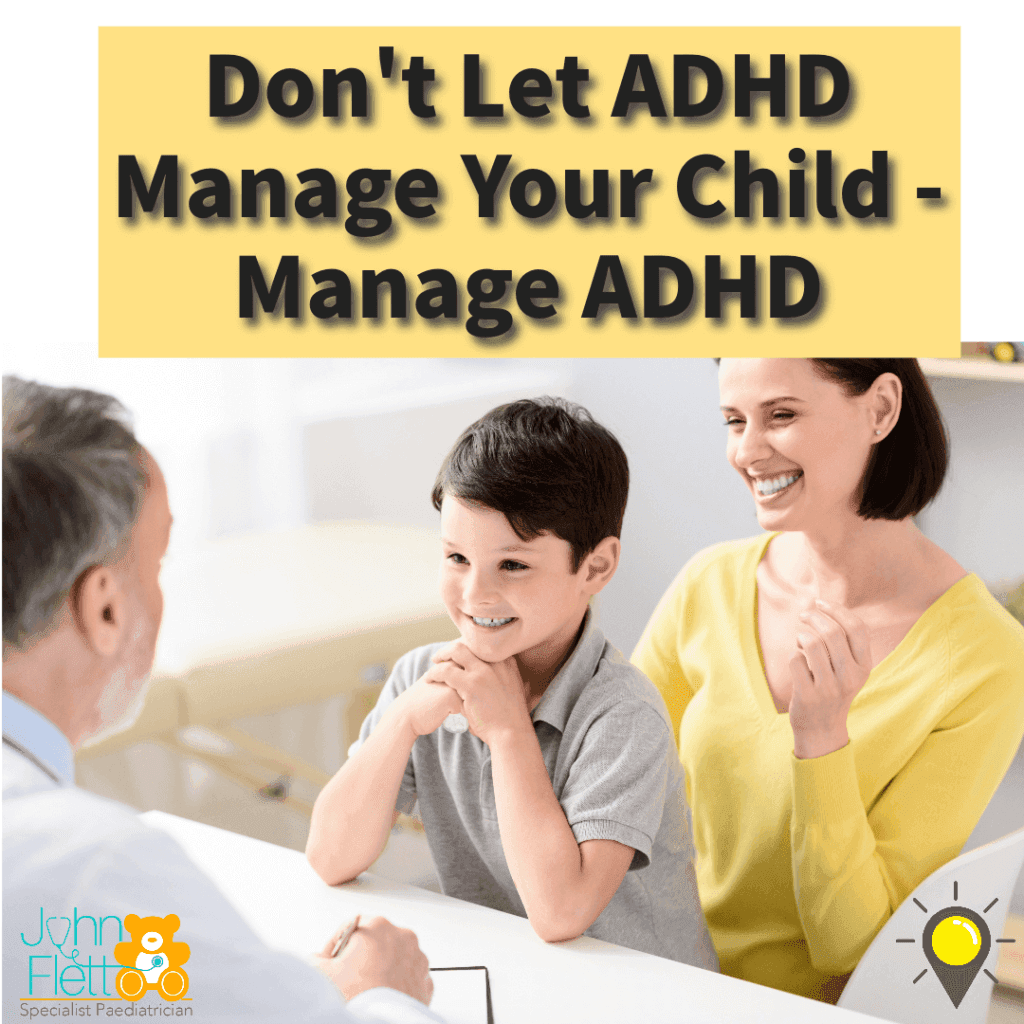Don’t Let ADHD Manage Your Child – Manage ADHD

A Deeper Dive into ADHD Management: The Imperative of Regular Consultations with ADHD Specialists
Attention Deficit Hyperactivity Disorder (ADHD) is an intricate condition significantly affecting a child’s life. Effectively managing this disorder necessitates continuous oversight and adjustments from a professional with specialised knowledge in ADHD, underscoring the importance of regular consultations with an ADHD expert. In this discussion, we broaden our perspective on ADHD management, emphasising the role of medication, the significance of monitoring its side effects, and the consequences of deficient monitoring through a compelling case study.
Medications in ADHD Management: The Need for Diligent Monitoring
Medications form an integral part of managing ADHD. These drugs aim to alleviate prominent symptoms such as hyperactivity, inattention, and impulsivity, supporting the child’s academic progress, emotional stability, and social growth. However, it is important to recognise that these medications may also introduce potential side effects.
These side effects can range from sleep disturbances and appetite changes to mood alterations and potential cardiovascular implications. As a result, scheduled check-ins with an ADHD expert are critical. These consultations facilitate effective monitoring of these side effects, enabling prompt detection and the necessary adjustment of medication dosages. Proactive management of side effects can not only avert additional health complications but also significantly enhance the child’s overall well-being.
The Case for Regular Monitoring: An Illustrative Study
To underscore the potential fallout of insufficient monitoring, consider the case of an eight-year-old child diagnosed with ADHD, who we’ll refer to as Alex. After diagnosis, Alex began a course of medication prescribed by a doctor. As there were no pressing concerns from the school and no perceivable issues from the parents, the medication regimen was renewed without scheduled follow-up consultations.
Nevertheless, over the course of the year, Alex began to exhibit subtle signs of discomfort. He became increasingly irritable and displayed signs of anxiety. His appetite dwindled, potentially impairing his growth due to inadequate nutritional intake. Alex’s sleep cycle also altered; he started going to bed late, waking up late, and having difficulty preparing for school in the morning. These changes were indicative of a potential issue with the medication’s effectiveness, but due to the lack of regular follow-up consultations, these warning signs were overlooked.
Suddenly, towards the end of the academic year, Alex’s performance at school drastically declined. His ability to focus waned, and coupled with sleep deprivation, he encountered a significant academic setback. The consequences were severe: Alex required additional remedial assistance, experienced a blow to his self-esteem, and his overall wellbeing was compromised.
Had there been routine consultations with an ADHD specialist, this could have been averted. An expert could have identified the changes in Alex’s behaviour, mood, and daily routines at an earlier stage, allowing for the timely adjustment of his treatment plan before his academic performance deteriorated.
Beyond the Scope of Non-Specialist Doctors and School Therapists
While non-specialist doctors and school therapists perform essential roles in maintaining a child’s health and wellbeing, their scope might not extend to effectively managing a multifaceted condition like ADHD.
Doctors without specialist ADHD training might overlook subtle signs indicating a decline in medication effectiveness or emerging side effects. School therapists, despite their competence in assisting children with school-specific challenges, may not be fully equipped to manage ADHD’s complexities. Their view of the child is context-specific and may miss behavioural changes or symptoms emerging in different settings.
Concluding Thoughts
Alex’s case study profoundly underlines the critical need for regular follow-up consultations with an ADHD specialist when managing ADHD. Timely detection of changes, understanding the intricacies of medication management, and the expertise to adjust the treatment plan as necessary can prevent situations like Alex’s, ensuring a healthier and more favourable developmental journey for a
a child with ADHD.
ADHD management isn’t solely about symptom control – it’s about fostering a child’s holistic development and well-being. Therefore, it is vital for parents and teachers to collaborate closely with ADHD experts, maintain open lines of communication, and commit to regular follow-ups. This proactive approach can enable children with ADHD to reach their full potential while minimising any potential obstacles to their growth and development.


